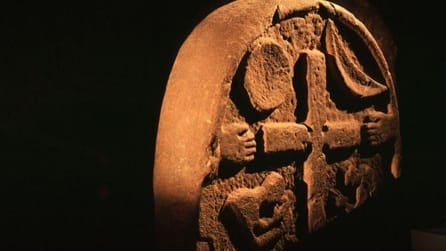The ancient Britons, particularly the Welsh and Cornish, have long been recognised for their deep spirituality and cultural heritage. An intriguing theory suggests that these ancient Britons are descendants of the Lost Tribes of Israel. While traditionally met with scepticism, recent examinations of linguistic similarities, cultural practices, and Biblical prophecies hint that there may be more substance to this connection than previously thought. This article explores tentative evidence linking the ancient Britons to the Israelites, offering a new perspective on this captivating possibility.
The Lost Tribes of Israel: A Biblical Foundation
The Lost Tribes of Israel refers to the ten tribes of Israel that were dispersed after the Assyrian conquest in 722 BC, fulfilling the prophecy of Deuteronomy 28:64: “And the Lord shall scatter thee among all people, from the one end of the earth even unto the other.” Over time, their identities became obscured, leading to their designation as the “Lost Tribes.”
A Journey Westward: Migration to the British Isles
The theory suggests that these dispersed tribes migrated westward through Europe, eventually reaching the British Isles. Isaiah 11:12 speaks of gathering “the dispersed of Judah from the four corners of the earth,” which some interpret as indicating the far-reaching migrations of the Israelites. Similarly, Genesis 28:14 contains God’s promise to Jacob that his descendants would spread globally, possibly alluding to their journey to Britain.
The idea that the Lost Tribes reached Britain is also stated in the famous hymn “And Did Those Feet in Ancient Time,” which symbolises a link between the British Isles and the Holy Land.
Linguistic and Cultural Connections
Linguistic similarities between Hebrew and Celtic languages, particularly Welsh and Cornish, provide intriguing evidence for this theory. Words like the Welsh “llais” (voice) resembling the Hebrew “kol,” and the Welsh “dydd” (day) echoing the Hebrew “yom,” suggest ancient contact or shared linguistic roots. Additionally, place names like “Britain” potentially deriving from the Hebrew “Berith” (covenant) and “Cymru” linked to the “Cimmerii” (a people possibly connected to the Israelites) reinforce this theory.
Cultural parallels also exist, particularly in legal systems and oral traditions. Both the Britons and Israelites valued genealogical records and oral histories, which played crucial roles in their societal structures. The deep spirituality of the Welsh people, reflected in their Biblical devotion, is further intertwined with this theory. Bishop William Morgan’s 1588 Welsh translation of the Bible embedded Biblical stories and Hebrew names into Welsh culture, as seen in place names like Bethesda, Bethel, and Carmel.
Biblical Prophecies and the British Connection
Interpretations of various Biblical prophecies also support the idea that the Israelites influenced the British Isles. Ezekiel 37:16-17, which speaks of reuniting the “sticks” of Judah and Joseph, is sometimes seen as a symbolic reunion of the scattered tribes, possibly in distant lands like Britain.
Conclusion: Tentative Evidence of a Spiritual Connection
I firmly believe that the ancient Britons, especially the Welsh and Cornish, are descendants of the Lost Tribes of Israel remains controversial, the evidence explored here suggests that it is more than mere speculation. Linguistic similarities, cultural practices, and Biblical prophecies offer tentative proof of a historical and spiritual connection between these two ancient peoples.
The hymn “And Did Those Feet in Ancient Time” captures the essence of this potential link, symbolising a connection between Britain and the Holy Land that has resonated within British culture for centuries. Cymru is truly blessed as are decendents whose lineage can be traced back with DNA roots here in this Holyland.
Cymru am byth
Stan Robinson













